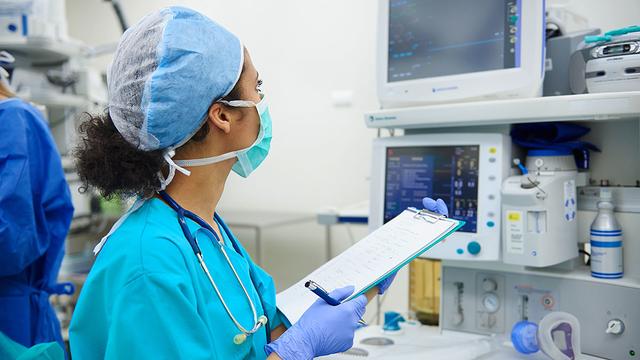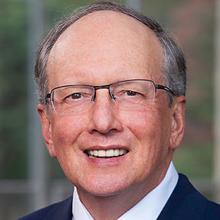ability to treat COVID patients in hotspots around the country. Photo: StoryBlocks
The coronavirus pandemic has upended nearly every aspect of day-to-day life and work. Few may be more aware of its wide-ranging effects than Humphrey School Professor Morris Kleiner, whose decades of expertise on economics and labor policy have given him a unique vantage point into the situation.
As the pandemic has progressed, Kleiner's research focus has shifted accordingly to examine the impacts of COVID-19 on the labor market—he even taught a new course on the subject, incorporating insights from both economists and epidemiologists.
In a followup to our 2017 interview with Kleiner, we asked him to explain how occupational licensing policies, which can differ dramatically from state to state, have affected the labor force. His answers have been edited for length and clarity.
How the pandemic has affected the labor force in general:
There have been some very dramatic changes in the labor force as a consequence of the pandemic. For example, there’s been a decline in the number of small businesses at the same time we’re seeing significant growth in large businesses. Companies like Walmart and Costco have grown as a result of the pandemic, while small mom-and-pop operations have had a very difficult time and are really struggling.
There’s also been some very significant effects on the labor force, and not necessarily good ones. Individuals who can work from home have been able to adapt. But individuals who work in other sectors, such as the entertainment area and transportation, have really had a very difficult time and have lost wages and jobs as a result.
One other interesting point, at least in the short term, is that people who are working from home are also working more hours.
The impact of occupational licensing on health care workers:
It’s been fairly dramatic. As a reminder, health care workers like nurses and respiratory therapists need to be licensed by individual states in order to work in those states. To illustrate what’s happened: There are groups of health care workers called “COVID chasers,” sort of like tornado chasers, who have been traveling around the country to assist at various COVID hotspots. One group of nurses, for example, went to Texas and then to Florida, to where COVID has really spiked for periods of time.
But it’s been much harder for these people to actually take care of COVID patients in those states, because the states have not been able to ramp up their medical labor capacity to assist patients. Licensing issues have really served as sand, rather than grease, in these particular labor markets.
How states are responding:
Since licensing is managed at the state level, it depends on each individual state. There are 36 states that have formed a compact to allow immediate licensing for nurses who move from one of those states to another. But Minnesota is not part of the compact. So if you come to Minnesota from another state, you have to meet Minnesota’s licensing requirements. And when our state was a hotspot for the pandemic, the governor had to give provisional licensing permission for individuals, especially nurses and respiratory therapists, to work here. Other states have done the same thing, granting provisional licenses for health care workers.
In Colorado, individuals who had just graduated as a respiratory therapist or as a nurse were given immediate temporary licensing. Normally they would have to do an apprenticeship or pass a test, and that would take many months. But given that Denver was at one point a COVID hotspot, these individuals were given immediate provisional licenses upon graduation. In addition, individuals who had let their licenses expire were immediately allowed to practice temporarily even though they had not kept their licenses up. As a result, Colorado increased its health care capacity by 10 to 15 percent.
So it’s not just hospital capacity, or equipment such as respirators, that are needed to treat patients with COVID. It’s the human capital of having enough staff to respond that is really important. And occupational licensing plays a really important role in the health care systems’ ability to deal with capacity.
On what happens next
In order to deal with the current crisis, states have adapted. But we’ve come to a point where a lot of the provisional licenses are expiring. Typically they would be in effect for 60 to 90 days, and for a lot of the COVID chasers who are going around to the various hotspots -- their provisional certificates will have expired. And the future is uncertain. Are all states going to keep these looser provisions? That’s to be determined. At least in the short run, and I view this as sort of battlefield commissions, individuals are given licenses in order to deal with the crisis at hand.



